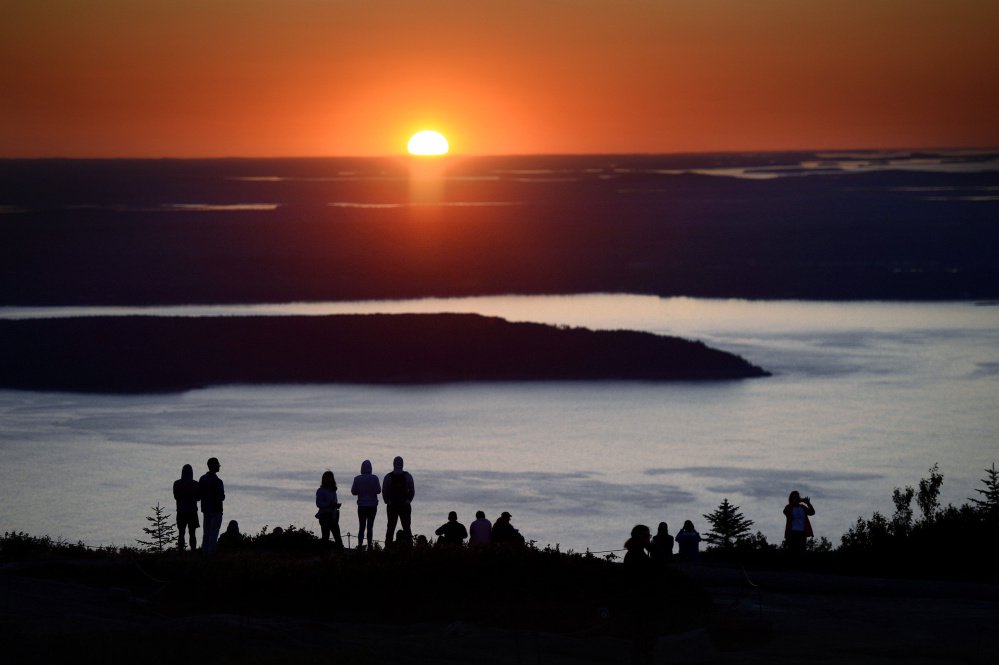Friends of Acadia and Maine’s congressional delegation are strongly opposed to the plan.
The U.S. Department of the Interior has extended the comment period on a proposal to significantly increase entrance fees during peak tourism season at Acadia National Park and 16 other popular national parks.
Public comments were originally due by Thursday, but the National Park Service extended the deadline until Dec. 22 “to accommodate interest in this issue from members of Congress and the public.” More than 65,000 comments had been submitted as of Tuesday.
Last month, the Park Service unveiled a proposal to increase the vehicle entrance fee at Acadia from $25 to $70 during “peak visitor season” from June 1 to Oct. 31. The cost of an annual pass to Acadia would jump from $50 to $75, and entrance fees for individuals would rise from $12 to $30 and from $20 to $50 for motorcyclists during peak season.
All passes would be valid for seven days. Park access fees would not change for vehicles, motorcycles and individuals from Nov. 1 to May 31.
Fees would also rise at 16 other heavily visited parks – including Grand Canyon, Rocky Mountain, Shenandoah, Yellowstone and Yosemite national parks – under the proposal. Acadia reported 3.3 million “visits” in 2016, ranking it eighth nationally in terms of total visitation.
The proposal was touted as a way to make a larger dent in the estimated $11.3 billion maintenance backlog in the park system, a figure that includes $71 million in deferred maintenance at Acadia. Under federal law, 80 percent of entrance fees stay within the park where they were collected.
“Fees have long been an important source of revenue used to improve the visitor experience and recreation opportunities in national parks and on other federal lands,” the Park Service said when announcing the extended public comment period. “Estimates suggest that the peak season price structure could increase national park revenue by $70 million per year. The funds would be used to improve roads, bridges, campgrounds, waterlines, bathrooms, and other amenities which enhance the visitor experience.”
The size of the increase – a 180 percent jump for vehicle passes at most parks, including Acadia – caught many people by surprise. Friends of Acadia, the nonprofit that works with the park, expressed concerns about how the increase would affect people’s relationship with the park and the local economy.
All four members of Maine’s congressional delegation also came out strongly opposed to the proposed increase at Acadia.
“Like most other parks, Acadia has felt the strain of the maintenance backlog, in part due to this sustained visitation,” Sens. Angus King and Susan Collins wrote in a letter last month to Interior Secretary Ryan Zinke. “While we recognize that this proposal would bring additional revenue to the park, we are not certain that this would either solve the problem or outweigh the risk to the local community of making the park more difficult to visit.”
Comments can be submitted online at: parkplanning.nps.gov/document.cfm?documentID=83652. Written comments can also be mailed to: National Park Service, Recreation Fee Program, 1849 C Street, NW, Mail Stop: 2346 Washington DC 20240.
Kevin Miller can be contacted at 791-6312 or at:
Twitter: KevinMillerPPH
Send questions/comments to the editors.



